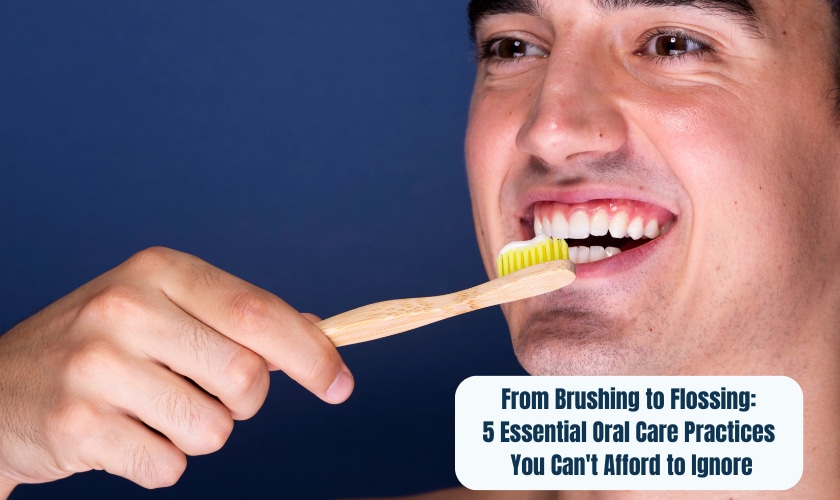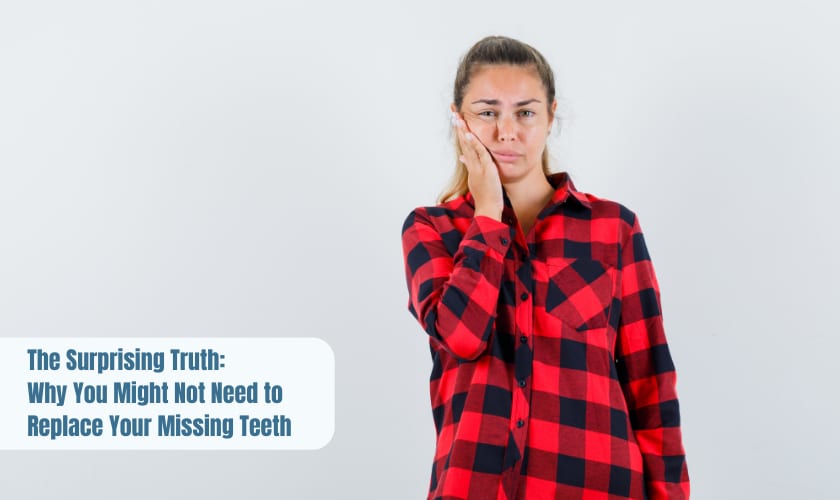
Are you tired of dealing with cavities, bad breath, and other dental problems despite brushing regularly? Don’t worry; you’re not alone. Many people overlook some essential oral care practices that can significantly improve their dental health. From flossing to using mouthwash, there’s more to maintaining excellent oral hygiene than just brushing your teeth twice a day. In this blog post, we’ll discuss five critical oral care practices that you simply cannot afford to ignore if you want healthy teeth and gums for life!
Your oral health is important, and you should take care of your teeth and gums to avoid problems like tooth decay and gum disease. There are many different oral care practices that you can do at home to keep your mouth healthy, and this article will discuss some of the most essential ones.
Brushing your teeth is the most basic oral care practice, and you should do it at least twice a day. Use a soft-bristled toothbrush and toothpaste with fluoride to gently brush all surfaces of your teeth. Be sure to also brush your tongue to remove bacteria that can cause bad breath.
Flossing is another important oral care practice, and you should do it at least once a day. Use dental floss or an interdental brush to clean between your teeth, reaching down to the gum line. This helps remove plaque and food debris that can cause cavities or gum disease.
In addition to brushing and flossing, you should also visit your dentist regularly for professional cleanings and checkups. Your dentist can remove any plaque or tartar buildup on your teeth, as well as check for any signs of Tooth decay or gum disease. They can also give you guidance on how to best take care of your teeth at home.
Basic Oral Care Practices
When it comes to oral care, brushing and flossing are just the basics. There are a few other essential oral care practices that you can’t afford to ignore if you want to keep your smile healthy and bright. Here are four of them:
1. Use mouthwash: Mouthwash is a great way to remove food particles and bacteria that brushing and flossing missed. Be sure to use a mouthwash that contains fluoride to help prevent tooth decay.
2. Visit the dentist regularly: Regular dental visits are important to catch any problems early and prevent more serious issues from developing. During your appointment, be sure to ask your dentist about how often you should have your teeth cleaned professionally.
3. Quit smoking: Smoking is one of the worst things you can do for your oral health. It increases your risk for gum disease, tooth loss, and oral cancer. If you smoke, make quitting your top priority for improving your oral health.
4. Eat a balanced diet: A diet that is high in sugar can contribute to tooth decay, while a diet lacking in certain nutrients can lead to gum disease. Eating a balanced diet is important for maintaining good oral health.
Brushing
Brushing your teeth is one of the most important aspects of good oral care. You should brush your teeth at least twice a day, preferably after every meal. When brushing your teeth, use a soft-bristled toothbrush and gentle circular motions. Be sure to brush all surfaces of your teeth, including the front, back, and top. Spit out the toothpaste after brushing.
Flossing
Flossing is an essential part of oral care that should not be ignored. Flossing removes plaque and bacteria from teeth and gums, helping to prevent cavities and gum disease. It is important to floss daily, using gentle strokes and enough pressure to remove plaque without damaging the gums.
Rinsing
It’s important to rinse your mouth after every meal, even if you don’t have time to brush. Rinsing helps remove food and plaque from your teeth and gums, and it can also help neutralize the acids that can cause tooth decay. Be sure to use a fluoride rinse to help prevent cavities.
Tongue Cleaners
A healthy mouth is essential to your overall well-being, and good oral hygiene starts with brushing your teeth twice a day. But that’s not all you need to do to keep your smile looking its best. Here are some other important oral care practices you shouldn’t ignore:
1. Use Mouthwash and Tongue Cleaners: In addition to brushing, using mouthwash or a tongue cleaner can help remove plaque and bacteria from your mouth. Be sure to use a product that contains fluoride, which will help protect your teeth against cavities.
2. Floss Daily: Flossing is essential for removing plaque and food particles from between your teeth, where your toothbrush can’t reach. Be sure to floss at least once a day, preferably before bedtime so that you don’t go to sleep with food in your teeth.
3. Eat a Healthy Diet: Eating plenty of fruits, vegetables, and dairy products helps keep your teeth and gums healthy. Avoid sugary snacks and drinks, which can contribute to cavities. Limit or avoid alcohol, which can cause dry mouth and increase your risk for gum disease.
4. Quit Smoking: Smoking is bad for your health in many ways, including damaging your oral health. It increases your risk for gum disease, tooth decay, and oral cancer. If you smoke, quitting is the best thing you can do for your smile – and your overall health
Regular Checkups at the Dentist
It’s important to keep up with regular checkups at the dentist, even if you brush and floss regularly. These checkups allow your dentist to detect any early signs of problems, such as tooth decay or gum disease. They can also help identify any areas where you may be at risk for these problems.
Benefits of Good Oral Health Habits
Good oral health habits are important for many reasons. They can help prevent gum disease, tooth decay, and bad breath. They can also help you keep your teeth and gums healthy as you age. Here are some of the most important benefits of good oral health habits:
1. Prevention of Gum Disease: Gum disease is a serious condition that can lead to tooth loss. Good oral hygiene habits can help prevent gum disease by removing plaque, the sticky film of bacteria that forms on teeth. Plaque can cause inflammation and infection of the gums, so it’s important to brush and floss regularly to remove it.
2. Prevention of Tooth Decay: Tooth decay is another serious problem that can lead to tooth loss. It happens when plaque turns into tartar, a hard deposit that sticks to your teeth. Tartar can damage the enamel, the outer layer of your teeth, causing cavities. Good oral hygiene habits can help prevent tooth decay by removing plaque and tartar from your teeth.
3. Bad Breath Prevention: Bad breath is caused by bacteria in the mouth. These bacteria release foul-smelling compounds that cause halitosis, or bad breath. Good oral hygiene habits can help reduce bad breath by keeping the mouth clean and free of bacteria.
4. Healthy Teeth and Gums: Good oral hygiene habits not only help prevent problems like gum disease and tooth decay, but they also help keep your teeth and gums healthy as
Foods to Avoid and Promote Healthy Teeth and Gums
There are a few specific foods that can promote healthy teeth and gums and help prevent cavities and other dental problems. Conversely, some foods should be avoided to maintain good oral health.
To promote healthy teeth and gums, it is important to eat plenty of crunchy fruits and vegetables. These foods help clean the teeth and massage the gums. Additionally, they contain vitamins and minerals that are essential for oral health. Some great options include apples, carrots, and celery.
It is also important to consume foods rich in calcium, such as dairy products like milk, yogurt, and cheese. Calcium helps strengthen the teeth and prevent tooth decay. Other good sources of calcium include leafy green vegetables, tofu, and almonds.
In terms of drinks, water is always the best choice for oral health. It helps rinse away food particles and bacteria that can lead to cavities or gum disease. fluoridated water can also help reduce the risk of tooth decay by strengthening the enamel on the teeth.
Certain foods should be avoided to maintain healthy teeth and gums. Sugary snacks and candy should be limited as they can cause cavities. Sticky foods like dried fruit or caramel can also be problematic as they tend to get stuck in between the teeth. Lastly, acidic beverages like soda or sports drinks can erode the enamel on the teeth over time so it is best to consume them in
How to Make a Home Care Routine
A good oral care routine at home is essential for keeping your smile healthy and sparkling. Here are some tips on how to make a home care routine that works for you:
1. Choose the right toothbrush. There are many different types of toothbrushes on the market, so it’s important to choose one that suits your needs. If you have sensitive teeth, look for a toothbrush with soft bristles. If you have gum disease, choose a toothbrush with firm bristles to help remove plaque from your teeth and gums.
2. Use the right amount of toothpaste. When brushing your teeth, use only a pea-sized amount of toothpaste on your toothbrush. Using too much toothpaste can be harmful to your teeth and gums.
3. Brush properly. Hold your toothbrush against your teeth at a 45-degree angle and use gentle circular motions to brush all surfaces of your teeth, including the front, back, and top surfaces. Be sure to brush for two minutes at least twice per day.
4. Floss daily. Flossing is just as important as brushing when it comes to maintaining good oral health. Be sure to floss between all of your teeth once per day using gentle back-and-forth motions.
5. Rinse with mouthwash after brushing and flossing (optional). Rinsing with mouthwash can help remove any remaining plaque or bacteria from your teeth and
Taking care of your teeth and gums is essential for maintaining good oral health. From brushing to flossing, there are five essential practices that you can’t afford to ignore if you want to keep your smile looking its best. Not only does proper oral hygiene help reduce the risk of cavities, but it also helps prevent gum disease and bad breath. If followed regularly, these simple tips can ensure a lifetime of healthy smiles.
FAQs
A: The American Dental Association (ADA) recommends brushing your teeth twice a day with fluoride toothpaste.
A: The ADA recommends using a pea-sized amount of toothpaste on your toothbrush. Aim the toothbrush at a 45-degree angle towards the gum line and use gentle circular motions. Be sure to brush on the inside surfaces of your teeth and to use a light back-and-forth motion on the chewing surfaces of your molars.
A: While there is no definitive answer, most dental professionals recommend flossing before brushing your teeth to remove any food particles or plaque that may be stuck between your teeth.
A: The ADA recommends brushing your teeth for two minutes, twice a day.





